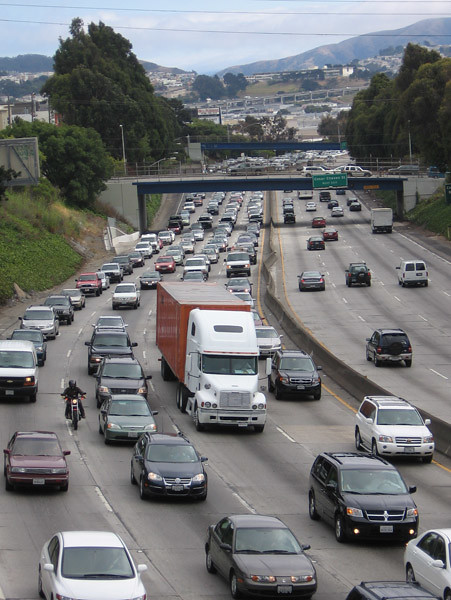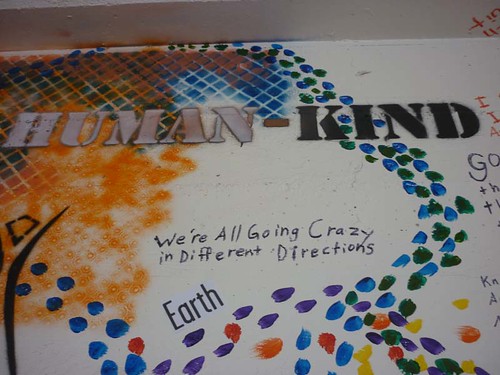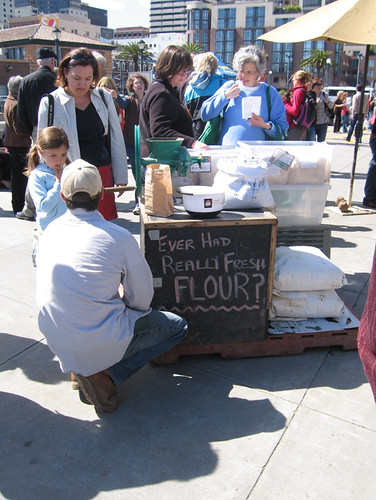 Independence is a big and important word in American history and culture. A noble concept in and of itself, it reaches far and deep into the country’s mythology and its people’s collective psyche. The U.S.’s independence as a nation is rooted in the rugged individualism among its citizens, a way of life that has been boosted by an unprecedented freedom from the constraints of nature and resources. From suburban McMansions to airplane commutes, there is a reason why the U.S. is advertised to immigrants like myself as the land of unlimited possibilities.
Independence is a big and important word in American history and culture. A noble concept in and of itself, it reaches far and deep into the country’s mythology and its people’s collective psyche. The U.S.’s independence as a nation is rooted in the rugged individualism among its citizens, a way of life that has been boosted by an unprecedented freedom from the constraints of nature and resources. From suburban McMansions to airplane commutes, there is a reason why the U.S. is advertised to immigrants like myself as the land of unlimited possibilities.
However, this perceived independence that is reinforced by material possessions and boundless mobility, is coming at an ever-increasing cost: The dependence on fossil fuels and all the problems associated with it. From fighting wars in oil rich countries, to epic oil spills, to the devastating effects of climate change, our ostensible emancipation from the constraints of nature that enabled us to create the illusion that we could go it alone is coming back to bite us.
On this Independence Day eve, please allow me to once again wander past the “dependence vs. independence” paradigm and discuss a third and perhaps middle way of how we might live in balance with the earth’s ecosystem, without losing our autonomy, free spirit, and creativity:
INTERdependence

A Declaration of INTERdependence
 A Declaration of INTERdependence is no more than accepting the obvious, for no matter what we do, we humans cannot survive independently of each other and of the planet’s ecosystem. We may think we are doing it all without anyone else’s help by driving to the store, picking up some food, paying with our credit card at the automatic checkout scanner, driving back into our remote controlled garage, popping the food in the microwave, then eating dinner while being entertained by the television â but we’re really just fooling ourselves.
A Declaration of INTERdependence is no more than accepting the obvious, for no matter what we do, we humans cannot survive independently of each other and of the planet’s ecosystem. We may think we are doing it all without anyone else’s help by driving to the store, picking up some food, paying with our credit card at the automatic checkout scanner, driving back into our remote controlled garage, popping the food in the microwave, then eating dinner while being entertained by the television â but we’re really just fooling ourselves.
This seemingly simple process of getting food in our tummy depends on literally thousands of processes and interactions, from getting the oil extracted to fuel and build our cars, to growing and distributing the food we’re buying, to powering the stove, dishwasher, and television. Not to mention all the things we do that have nothing to do with survival and are purely designed to entertain our minds that are increasingly unable to find meaning and purpose without material boosters. Almost every facet of our life that we take for granted is completely fossil-fueled, and thus dependent on a whole host of industrial processes we have no control over.
It is, in fact, a very complex and anonymous system of interdependence that has allowed us to revel in a false sense of independence. These very complex systems have not only sheltered us from the staggering amount of energy that goes into them but the huge mountains of waste they produce. It’s only during blackouts, phone and internet disconnections, and periods of rising oil prices on an elusive world market that we realize how dependent we’ve really become on mechanisms that are beyond our control.
 Since clearly we are interdependent creatures, not only amongst each other but in relation to all living things and beings on this planet, why not own it? Why keep that stubborn individualistic front when its hidden baggage has brought the ecosystem we depend on to the brink of collapse?
Since clearly we are interdependent creatures, not only amongst each other but in relation to all living things and beings on this planet, why not own it? Why keep that stubborn individualistic front when its hidden baggage has brought the ecosystem we depend on to the brink of collapse?
Resilience and Interconnectedness have become big buzzwords in the movement to transition to a post-carbon world, but they’re really just ideas for cutting out the big, bloated fossil-fuel-pushing middlemen. They’re tools for relearning and sharing valuable skills that we’ve been made to forget in the name of progress, and inspiration for regaining trust in our own and each others’ abilities to create the kind of support system that fuels not only our bodies but our souls.
The resilience issue of Yes! Magazine had a survey where you can test how resilient you are. It’s a good way to see how openly interconnected your life is.
Here’s the section on how hooked in you are to your community, for the purpose of this post.
1 = strongly disagree, 2 = disagree, 3 = agree, 4 = strongly agree13. I have friends and acquaintances in my local community (and I know their faces, not just their Facebook pages).
14. I am comfortable asking my neighbors if I can borrow stuff (e.g., tools, ingredients).
15. I could easily call on nearby friends and neighbors for help in an emergency.
16. I offer support to people in my community when they need help.
17. Iâm active in community groups (like neighborhood associations, potlucks, churches, soup kitchens, gardening clubs, arts organizations, or local political groups).
to do the whole test and add your scores, go here
I wish us all a Happy INTERdependence Life!









Huzzah to that.
Interdependent more accurately describes the vulnerability of being human. Perhaps we should celebrate this too since we clearly are social animals.
true dat. It’s just our natural state, but the fact that it needs to be pointed out just shows how far astray we’ve gone.
Reblogged this on THE AGENCY.
cool, thanks!
Thanks, Sven, for helping me, again, to see. Pam
Thanks Pam, I’m just glad to be a little light among so many.